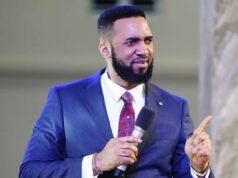This bold statement by Tasha casts a spotlight on the complex dynamics within Nigerian religious institutions, particularly the unchecked authority and influence that many pastors wield. In Nigeria, pastors often operate in an environment where religious reverence, societal norms, and weak institutional checks allow certain behaviors — financial exploitation, emotional manipulation, and unverified claims of miracles — to go unquestioned.
Tasha’s comment underscores the notion that much of this conduct thrives in a system where followers are conditioned to revere spiritual leaders without scrutiny, and where institutions that might otherwise enforce accountability — such as regulatory bodies or the media — are either too weak, too complicit, or too fearful to intervene.
Outside Nigeria, however, many of these same pastors find themselves constrained by stricter legal systems, more informed congregations, and a culture that values transparency and holds leaders — religious or otherwise — to higher standards. In places like the U.S., U.K., or Canada, religious leaders can face legal action or public backlash for actions that might be overlooked or even applauded in Nigeria. For instance, financial impropriety can quickly trigger investigations; claims of supernatural healing must often comply with laws on medical advice and advertising; and emotional or psychological abuse in the guise of spiritual leadership can lead to serious consequences.
Tasha’s words are not just a critique of religious figures but a challenge to the broader Nigerian society. They highlight a deep need for greater awareness, accountability, and institutional reform — not just to call out wrongdoing, but to protect vulnerable followers who genuinely seek spiritual guidance. The statement ultimately asks: If certain behaviors are unacceptable elsewhere, why are they tolerated at home?
It’s a call to rethink how power, faith, and accountability intersect in Nigeria’s religious landscape.




















